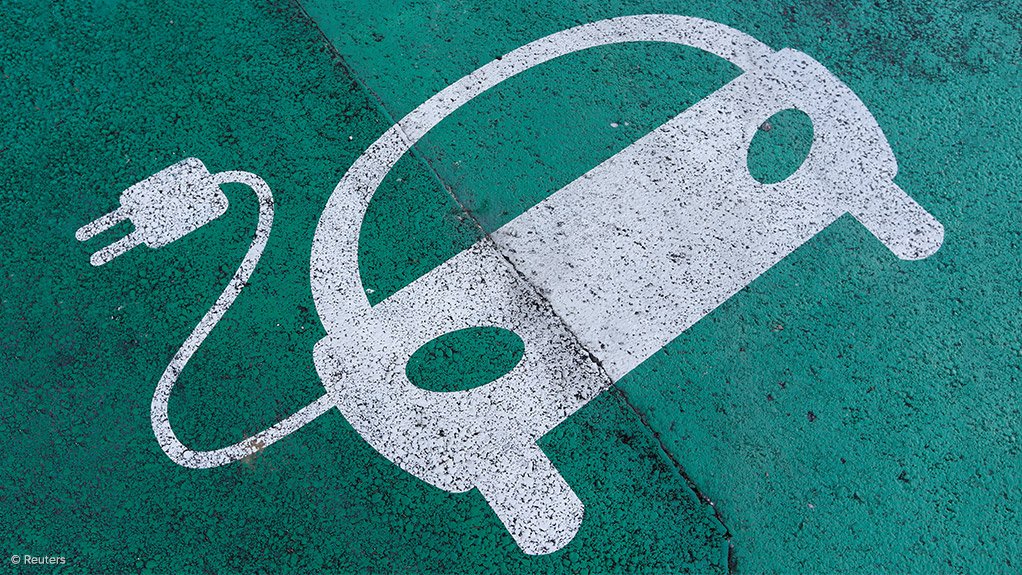BHP sees ‘fly-up’ in copper prices later, but short-term outlook cooler


With EVs being three times as copper-intensive as internal combustion engine vehicles, BHP expects the transport sector to account for over 20% of global copper demand by 2040.
With EVs being three times as copper-intensive as internal combustion engine vehicles, BHP expects the transport sector to account for over 20% of global copper demand by 2040.
The diversified mining company has projected a strong outlook for the copper market, forecasting significant price increases owing to expected supply deficits in the latter part of the decade. However, its short-term outlook is more cautious, with the group lowering its forecast for Chinese demand this year and warning of a marginal surplus until the end of next year.
The Australia-headquartered mining giant bases its long- term outlook on the expectation of emerging deficit conditions in the copper market during the final third of the 2020s.
The company foresees a challenging environment for new copper production, with the marginal tonnes in the long-term market likely to originate from either lower- grade brownfield expansions in established mining regions or higher-grade greenfield projects in higher-risk, emerging areas.
“None of these sources of metal is likely to come cheaply, easily – or, unfortunately, promptly,” BHP states in its latest ‘Economic and Commodity Outlook’, highlighting the difficulties in bringing new copper supplies to market.
The company believes that these constraints could lead to a “fly-up” pricing regime, where copper prices become disconnected from traditional cost curves owing to a persistent excess of demand over supply.
The group anticipates a 70% growth in global copper demand between 2021 and 2050. But as global demand for copper continues to grow – driven by the metal’s critical role in renewable-energy technologies, electric vehicles (EVs) and infrastructure – the supply side faces significant hurdles in keeping pace. This imbalance, BHP warns, could lead to a period of elevated and volatile prices, exacerbated by insufficient inventory levels.
With EVs three times as copper- intensive as internal combustion engine vehicles, BHP expects the transport sector to make up over 20% of global copper demand by 2040, compared to only 11% today.
Data centres will be another source of solid copper demand growth, requiring vast amounts of power and cooling, which all require copper, to deliver AI-enabled services. Demand growth in this sector, currently about 1% of global copper demand, could grow sixfold out to 2050.
Meanwhile, in its short-term outlook, BHP notes that Chinese copper demand enjoyed a robust 2023, with a 6% year-on-year increase, driven by healthy growth across end-use sectors and strong demand from energy transition sectors. However, the company expects 2024 to 2025 to be a period of consolidation, with more modest growth of 1% to 2% year-on-year. This is a downgrade from BHP’s prior expectations, reflecting shifts in the Chinese real estate market, particularly the sharp contraction expected in housing completions, a major indicator for copper end-use in housing.
OECD economies are projected to see a modest demand recovery over the next 18 months, with the US expected to bounce back more rapidly than Europe and Japan. India continues to be a bright spot for demand growth, albeit from a relatively small base.
On the supply side, the copper mining sector experienced a tumultuous 2023, marked by unexpected mine closures and guidance downgrades for 2024. While mine supply disruptions in 2024 are expected to be in line with the 5% historical average, the events of 2023 have created a lower starting point, resulting in a projected supply growth of less than 2% year-on-year in 2024, improving to 4% in 2025.
Regional trends are varied, BHP notes, with African supply rising strongly, driven by Chinese investment in the Democratic Republic of Congo, while the Americas remain relatively stagnant, if not in decline.
In 2024, BHP expects the copper market to experience a marginal surplus, followed by a slightly larger, though still modest, surplus in 2025. However, this accumulation of inventory is likely to offer only minimal protection against the anticipated deficits in the latter half of the decade, the major notes.
Article Enquiry
Email Article
Save Article
Feedback
To advertise email advertising@creamermedia.co.za or click here
Press Office
Announcements
What's On
Subscribe to improve your user experience...
Option 1 (equivalent of R125 a month):
Receive a weekly copy of Creamer Media's Engineering News & Mining Weekly magazine
(print copy for those in South Africa and e-magazine for those outside of South Africa)
Receive daily email newsletters
Access to full search results
Access archive of magazine back copies
Access to Projects in Progress
Access to ONE Research Report of your choice in PDF format
Option 2 (equivalent of R375 a month):
All benefits from Option 1
PLUS
Access to Creamer Media's Research Channel Africa for ALL Research Reports, in PDF format, on various industrial and mining sectors
including Electricity; Water; Energy Transition; Hydrogen; Roads, Rail and Ports; Coal; Gold; Platinum; Battery Metals; etc.
Already a subscriber?
Forgotten your password?
Receive weekly copy of Creamer Media's Engineering News & Mining Weekly magazine (print copy for those in South Africa and e-magazine for those outside of South Africa)
➕
Recieve daily email newsletters
➕
Access to full search results
➕
Access archive of magazine back copies
➕
Access to Projects in Progress
➕
Access to ONE Research Report of your choice in PDF format
RESEARCH CHANNEL AFRICA
R4500 (equivalent of R375 a month)
SUBSCRIBEAll benefits from Option 1
➕
Access to Creamer Media's Research Channel Africa for ALL Research Reports on various industrial and mining sectors, in PDF format, including on:
Electricity
➕
Water
➕
Energy Transition
➕
Hydrogen
➕
Roads, Rail and Ports
➕
Coal
➕
Gold
➕
Platinum
➕
Battery Metals
➕
etc.
Receive all benefits from Option 1 or Option 2 delivered to numerous people at your company
➕
Multiple User names and Passwords for simultaneous log-ins
➕
Intranet integration access to all in your organisation


















